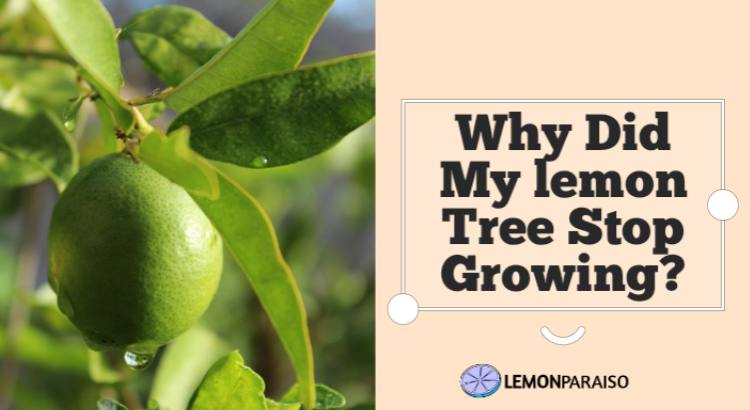Why Did My Lemon Tree Stop Growing?

There’s something magical about the lemon tree, with its vibrant yellow fruit and tangy taste that adds zest to culinary creations. However, sometimes these lively trees face a perplexing problem: they stop growing. For gardening enthusiasts and lemon tree aficionados alike, this can be a disheartening experience. Let’s explore the various factors that could cause a lemon tree to stop growing and learn how to bring it back to life.
Why did my lemon tree stop growing?
Lemon trees can stop growing for a variety of reasons. It may be due to inadequate sunlight, improper watering, poor soil quality, or the presence of pests and diseases.
It’s crucial to identify the root cause of the problem in order to provide the appropriate care and treatment for your tree to encourage healthy growth.
How can I revive a lemon tree that has stopped growing?
Reviving a lemon tree that has stopped growing involves addressing the issues causing the stunted growth. Ensure the tree receives adequate sunlight, is watered properly, and is planted in well-draining soil with the right pH level.
Additionally, consider providing the tree with appropriate fertilizer and addressing any pest or disease issues that may be present.
What are the common reasons for stunted growth in lemon trees?
Some common reasons for stunted growth in lemon trees include insufficient sunlight, overwatering or underwatering, poor soil quality, lack of nutrients, and the presence of pests or diseases.
It’s important to monitor your lemon tree’s environment and care routine to identify and correct any of these issues as they arise.
How much sunlight does a lemon tree need to grow properly?
Lemon trees require ample sunlight to grow properly. They thrive when exposed to at least 6 to 8 hours of direct sunlight per day.
If your lemon tree isn’t receiving enough sunlight, consider moving it to a sunnier location or providing supplemental lighting if it is being grown indoors.
Can soil quality affect the growth of my lemon tree?
Soil quality plays a significant role in the growth and overall health of a lemon tree. Lemon trees prefer well-draining soil with a pH level between 6.0 and 7.5.
If your tree’s soil doesn’t meet these criteria, you may need to amend it with organic matter or adjust the pH level to ensure optimal growth.
Should I fertilize my lemon tree to promote growth?
Fertilizing your lemon tree can help promote growth, but it’s essential to use the right type and amount of fertilizer.
A slow-release, balanced fertilizer designed for citrus trees can provide the necessary nutrients for healthy growth. Apply the fertilizer according to the package instructions, typically once in spring and again in fall.
Can pests or diseases cause a lemon tree to stop growing?
Pests and diseases can be a significant factor in the stunted growth of a lemon tree. Common pests include aphids, scale insects, and spider mites, while diseases like root rot, canker, and greening can also adversely affect growth.
Regularly inspect your tree for signs of pests or diseases, and treat them accordingly to maintain a healthy tree.
When is the best time to prune a lemon tree that has stopped growing?
The best time to prune a lemon tree that has stopped growing is typically in late winter or early spring, before the tree begins to produce new growth.
Pruning can help promote healthy growth by removing dead, damaged, or overcrowded branches and encouraging the tree to put energy into new growth.
Should I transplant my lemon tree if it has stopped growing?
Transplanting a lemon tree that has stopped growing may be necessary if the tree’s current environment is not conducive to growth, such as inadequate sunlight, poor soil quality, or a lack of space for its roots to expand.


